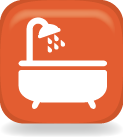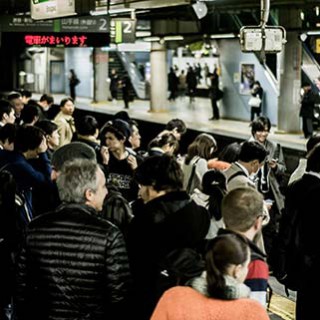Japan Travel Tips
 |
Bowing - The polite greeting in Japan is to “bow”. Bow from the waist and keep your arms straight by your side. Imitate the bows you receive – don’t over bow or ignore the greeting. Smile and nod if nothing else, you don’t want to be perceived as rude. |
|
|
Money - We strongly advise you to obtain Japanese Yen in cash before you leave your home country. In major cities such as Tokyo, Osaka, etc., the use of credit cards (Master & Visa) are widely accepted. However, town in remote areas or even little shops in the major cities will only accept cash payment. ATMs in Japan do not accept cards that are issued outside of Japan, except for ATMs found at post offices and 7-Eleven convenience stores. Exchange rates offered at ATMs tend to be competitive, but service fees vary widely depending on the card. Inquire with your card issuer in advance. Note that many ATMs in Japan are out of service during the night, and some are unavailable on weekends.
|
|
|
Tipping - Tipping is not common practice in Japan, however if you do choose to tip, place the tip inside an envelope and pass the envelope; as giving money straight from your wallet/pockets is considered to be rude.
|
|
|
Transport - Japan has an efficient public transportation network, especially within metropolitan areas and between the large cities. |
|
|
Footwear - When in a hotel similar to entering the home, shoes are removed and exchanged for a pair of slippers; this is even more particular in traditional Japanese styles of accommodation, such as the Ryokan. If you can remember try to face the shoes outwards. |
 |
Electricity - As the voltage in Japan is 100V, travellers are required to use an adapter to convert any appliances. 60HZ in the west, 50HZ in the east and Tokyo. The adapters have 2- flat pins, similar to the adapters for the United States. |
|
|
Bathroom - A bathroom in Japan typically has two rooms. One room is used for undressing and using a hand sink, the other has a deep bath and shower; with the bathroom in a separate room. Japanese wash and rinse their bodies with washbowls before getting into the tub. The bathtub is only used to soak. After soaking, one gets out of the tub and cleans up with soap. Once the soap has been rinsed off, one can get back into the tub for the final soak. This is the correct manner to bathe when using publicly shared bathrooms especially.
|
 |
Toilet - Most toilets in Japan have a built-in bidet system for spraying your backside, also known as washlets. However do not be alarmed if you come across traditional Japanese "floor toilet", normally found in public areas. |
|
|
Bedding - The larger percentage of beds and pillows in Japan can be considered a lot harder compared to in Australia. It is believed good beds and pillows shouldn't be soft, as they cause misalignment of the spine because they can't hold your body in the proper position and distribute your body weight evenly; this is why the “Tatami Mat” and “Japanese Buckwheat Hull Pillow” (or 'Soba Gara Makura' as it is called in Japan) is preferred in Japan. |
|
|
Dining/Drinking - Japan has a reputation of being an extremely expensive, and it can be, depending on where you are looking. Visit a vending machine café; you can get curry with rice, a soup and salad for approx. $7. Smaller cafes offer a real Japanese experience. If you are looking for a different dining experience, big named restaurants will have prices similar to Australia. A good rule of thumb is look for places which display a price or even a model of the food with a price outside the establishment, that way you will be able to see the value.
|
|
|
Shopping - 100 Yen shops are another place for a great bargain and can serve as a place to purchase souvenirs. They stock thousands of products from food to toys to household needs and everything is only 100 yen (plus tax), approx. $1. |









